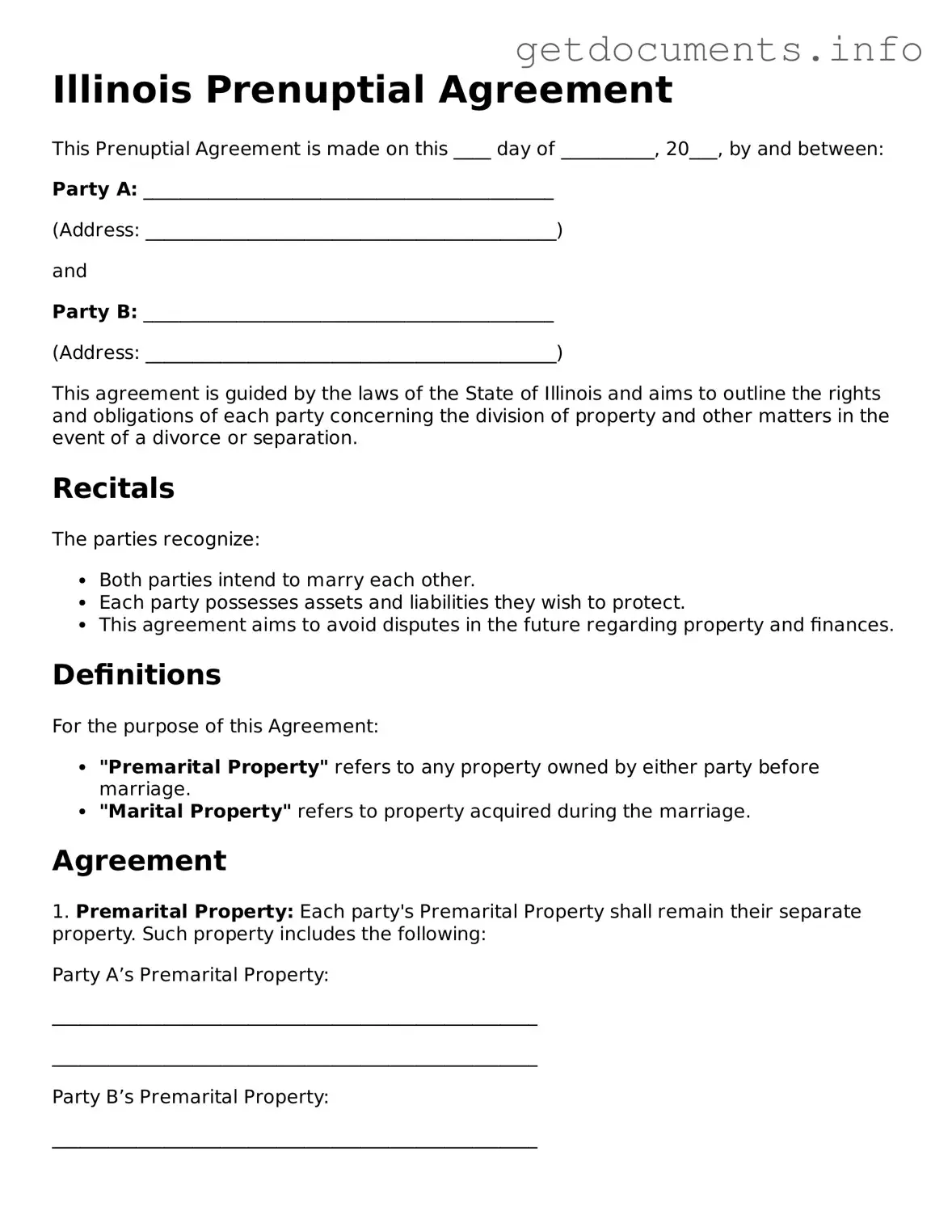Free Prenuptial Agreement Template for Illinois
A Prenuptial Agreement in Illinois is a legal document that outlines the distribution of assets and responsibilities between partners in the event of a divorce or separation. This form helps couples clarify their financial rights and obligations before entering into marriage. Understanding its importance can pave the way for a more secure future together; consider filling out the form by clicking the button below.
Access Prenuptial Agreement Editor

Free Prenuptial Agreement Template for Illinois
Access Prenuptial Agreement Editor
Got places to be? Complete the form fast
Fill out Prenuptial Agreement online and avoid printing or scanning.
Access Prenuptial Agreement Editor
or
⇩ PDF File
